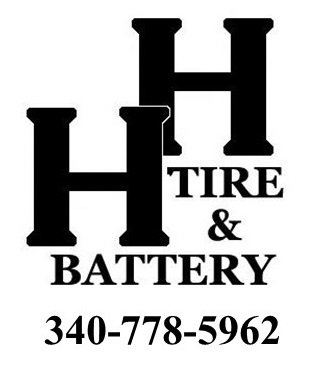
PREVENTATIVE MAINTENANCE
Preventive Auto Maintenance
We recommend that you schedule regular oil changes and have your tires balance and rotated at proper intervals. Not only will you save big on major auto repairs, scheduling regular, preventative maintenance visits will help your car run better and more efficiently.
Wheel Alignment
In the Virgin Islands, our roads can knock your car out of alignment. You will feel the differences of steering instability and a rough ride. Wheel alignment issues should to be corrected to keep the car from developing long-term problems. If you notice the signs of uneven wear on your tires, it is a good time to bring the auto in to have it checked
Tire Alignment and Out-of-Balance Warning Signs:
• Vehicle pulls to right or left when driving
• Steering wheel is not straight while driving on a level road
• Vibration in the steering wheel or through your seat
New cars have different wheel alignment needs than older cars. A trained professional auto service worker can determine what kind of alignment your particular car needs. He has the knowledge and ability to perform any kind of alignment, whether front-end alignment or all-wheel alignment.
Tire Balancing / Rotation
Tire balancing is important once you have purchased your tires, and at regular intervals after that. Tires need to be balanced because they can develop heavy spots. This can lead to vertical or side-to-side tire vibrations.
Refer to your Vehicle Owners Manual for recommended tire rotation pattern and interval for your vehicle. It is recommended to rotate your tires every 6,000 to 8,000 miles, or sooner if uneven tread wear begins to appear. If tires are showing uneven tread wear, ask the H.H. service person to check and/or correct any alignment or other mechanical problem before rotation.
This is true for both front wheel and rear wheel drive vehicles. Full size spare tires should be included in the tire rotation pattern for your vehicle. Compact spares (temporary use spares) should not be included in the tire rotation pattern.
Charging Systems Maintenance
Signs That Your Charging Systems Need Maintenance
In order for your vehicle to operate correctly, it requires a constant electric current. Below are some signs that indicate when to have your charging systems inspected:
• The car is having problems starting
• Your battery is recurrently failing, even after installing a new one
• Your vehicle shuts off while in use
• The headlights appear stronger when the vehicle is turned off
• There is a noise coming from the alternator
• Electrical components are not working correctly
While these are only some of the indicators that your charging systems may have an issue, our Factory Trained Mechanics will be able to give you a proper diagnosis as to what is actually causing the problem.
Shocks/Struts/Bushings
The shocks and/or struts in your car perform two functions. They dampen spring oscillation, and secondly, they aid in ride control.
The shock absorbers in your car aid in ride control by keeping the car manageable during regular driving. They do this by keeping the tires down on the road and not allowing them to bounce after hitting a bump. This allows for ease of cornering and handling.
Here are the signs that you may need new shocks and/or struts:
• Vehicle rolls or sways on turns
• Front end dives when braking
• Rear end squats when accelerating
• Vehicle bounces or slides sideways on a winding, rough road
• Vehicle "bottoms out" (with a thump) on bumps
In addition, worn shocks and/or struts can accelerate the wear of your tires and suspension parts, the ball joints, steering linkage, springs and C.V. joints.
Preventative checkups are the key to side-stepping the effects of worn shocks and/or struts. Have your H.H. technician check them every time you have an oil change.
Don't "cut corners" when it comes to your shocks/struts. Proper functioning of these parts is essential to the handling and cornering of your vehicle, making for safer driving conditions.
Brakes
From the brake pedal to hydraulic brake fluid, brake master cylinder to power brake booster, drum brakes to disc brakes and electronic anti-lock brake sensors, H.H. factory trained mechanics know every part of your brake system inside and out.
When you purchase brake pads and brake shoes at H.H. Tire & Battery, you also get our 90-Day Parts & Labor guarantee. Regular brake inspections should be part of your vehicle's ongoing maintenance, helping to ensure its safety and reliability. We recommend that you have them inspected at least once a year or if you experience any of the following:
Low or spongy brake pedal
Hard brake pedal
Brake warning light that stays on
Continuously squealing or grinding brakes
Any time you notice these symptoms (or any others), it’s a good idea to have your brakes checked. At H.H., if our inspection reveals they do require repair, we will explain exactly what's required, what’s optional and provide you with an estimate before any work is done.
Oil Lube/Filter
Changing your oil every 3,000 miles (5,000 kilometers), or as recommended by the vehicle manufacturer based on your driving conditions, is vital for your vehicle and can help you avoid costly problems. With each oil change, the oil filter may also need to be replaced. Ask for an oil change and a factory trained H.H. mechanic will select the correct viscosity grade oil for your vehicle and perform oil and filter service. While you’re there, ask for a courtesy check, including a visual check of the following items:
Engine air filter
Brake fluid
Power steering fluid
Automatic transmission fluid
Coolant/antifreeze
